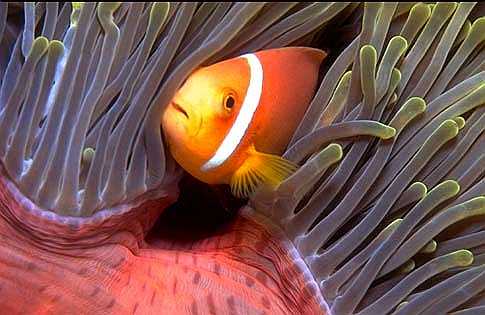
Attractive decoration is of paramount
importance to the presentation of any marine display. Although many of
the choices are subjective, there are a number of practical consideratons
such as how safe the rocks are, are they likely to affect the water quality
and will they compliment the livestock.

LAVA Rock- is a natural volcanic
rock, which is not recommended for the marine aquarium as it contains heavy
metals and toxic substances.
Safe lava rock make excellent
homes for invertebrates and fish alike. It is light, porous, displaces
very little water, and locks together well into safe structures. On the
negative side, lava rock is very expensive, has dangerously sharp edges
and is usually incapable of being worked. It has o pH buffing ability whatsoever
and may even be slightly acidic.
LIMESTONE- A very hard rock of an alkaline nature and well suites to the marine aquarium. However, it does displace massive amounts of water.
SLATE- Slate is inert and may be used without fear of toxicity. It looks rather unnatural, is heavy and displaces a lot of water.
BARNACLE SHELLS- giant shells are very decorative and are convenient as they offer a place to live o the smaller fish and the invertebrates
SANDSTONE- decorative sandstone with attractive sand blasted shapes and varying colours are an interesting choice for people who want something unusual. However, it will discolour badly as micro-algae colonize the surface.
Other decorative items- Ceramic
jugs and vases can be used to create special underwater effects and are
safe to use.
Plastic to7ys and novelty
tend to look fake and may not even be safe as some plastics and dyes are
toxic underwater.